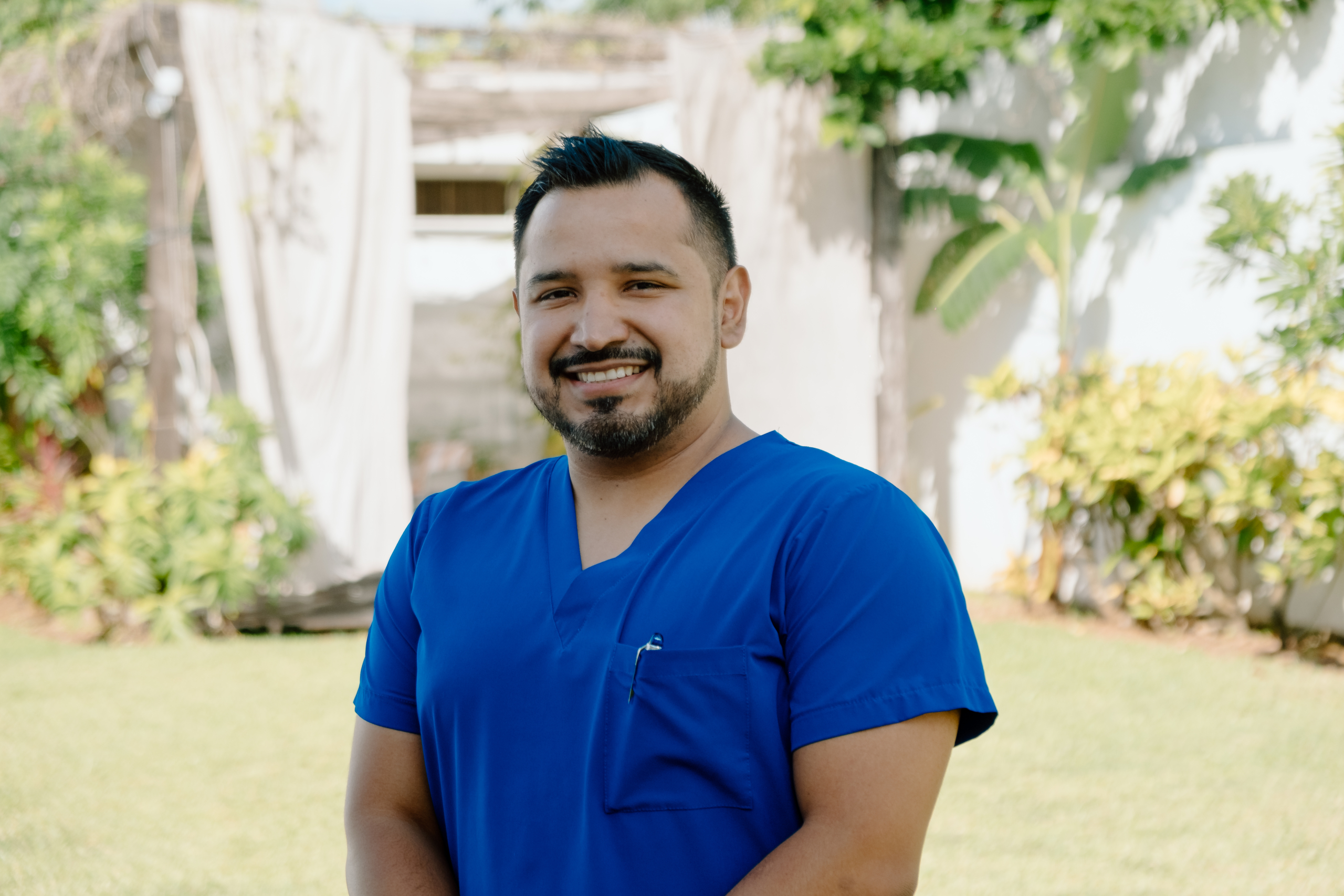
At 36, Dr. Gibrand Noriega is a force on our medical team at Beond. His drive to heal is as relentless as his athletic pursuits—like the triathlons he competes in during his spare time. In the races, he has to make a physical and psychological commitment to pushing through uncertainty and never giving up.
Dr. Noriega is dedicated to achieving more—he trained for a decade to become the doctor he is. He sets personal goals that require continuing support. This energy allows him to better identify with the journey of the people who are coming to Beond—to see himself in the patients who set their own goals for self-improvement. To see the link between him tracking his progress with his smartwatch and guests noting their improvement in journals and in our charts of clinical datasets.
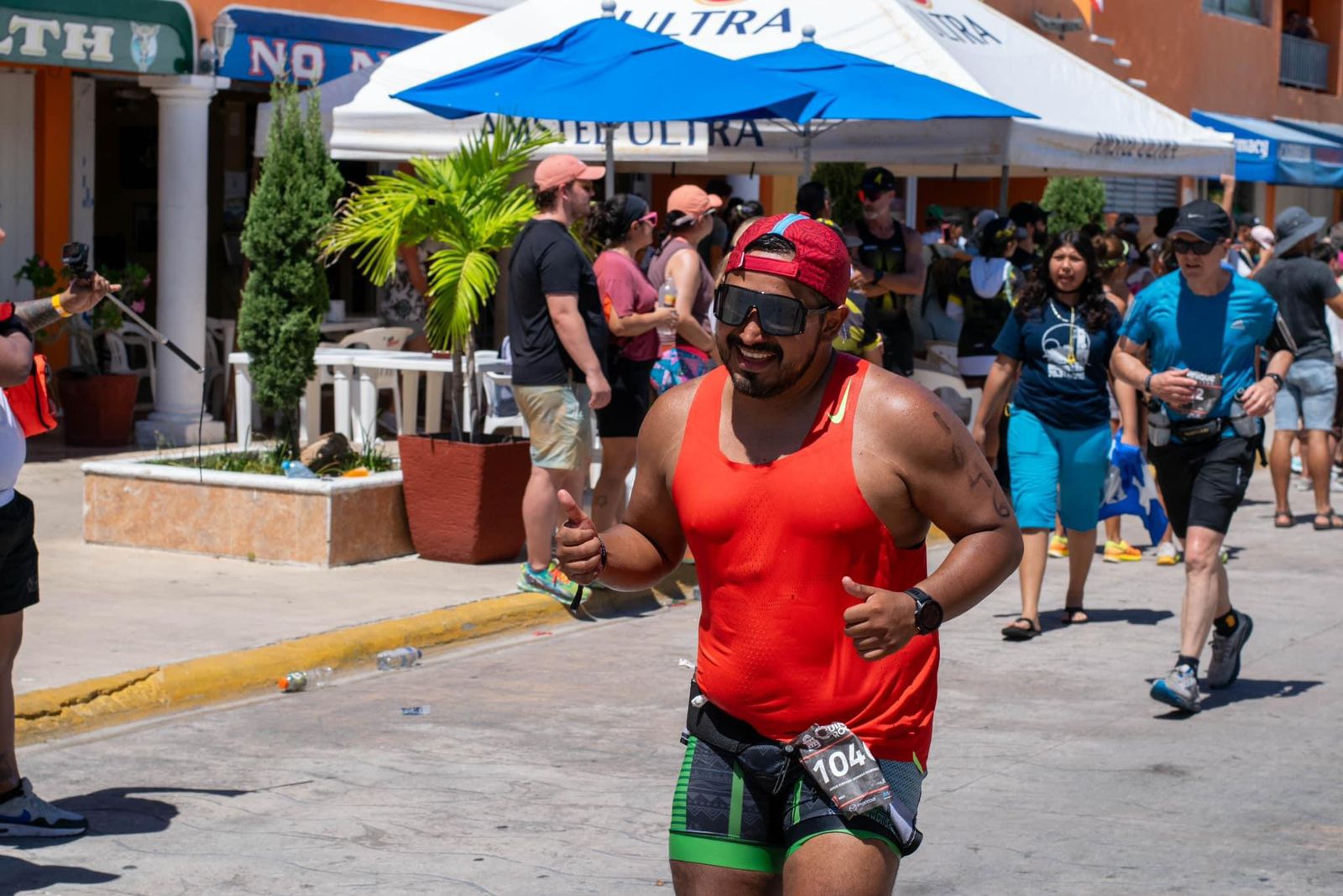
Dr. Noriega trained as an emergency medicine physician, where he learned to watch over he heart, body, and vital signs. He has continued to train as a physician, to take a holistic approach to patient care, to look after guests’ overall well-being during their time at Beond.
This deep sense of responsibility extends beyond Dr. Noriega, and is shared by the rest of our medical staff—our nine doctors and more than 20 nurses.
“We’ve assembled a truly remarkable team—a collective of the brightest minds and most dedicated medical professionals. But what makes this team exceptional isn’t just individual brilliance; it’s how seamlessly they’ve come together.” says Tom Feegel, Beond’s co-founder. “It’s a unity built on a shared mission, a passion for changing lives, and the understanding that we’re in service to something much bigger than ourselves.”
A Beond Doctor with Top-Notch Training
Ibogaine is an unexpected destination for Dr. Noriega. Before immersing himself in ibogaine—an unusual medical treatment that uses the root of a shrub to induce a psychedelic, dream-like state—Dr. Noriega started off on a more traditional medical path.
He studied medicine at the National Autonomous University of Mexico, one of the most prestigious universities in Latin America, often ranked in the top ten in the region. He completed a specialization in Emergency Medicine in Cancun, and did a second specialty in critical care. “The COVID-19 pandemic was a period of significant stress and trauma due to the high mortality rates,” Dr. Noriega says. (He worked in an intensive care unit.)
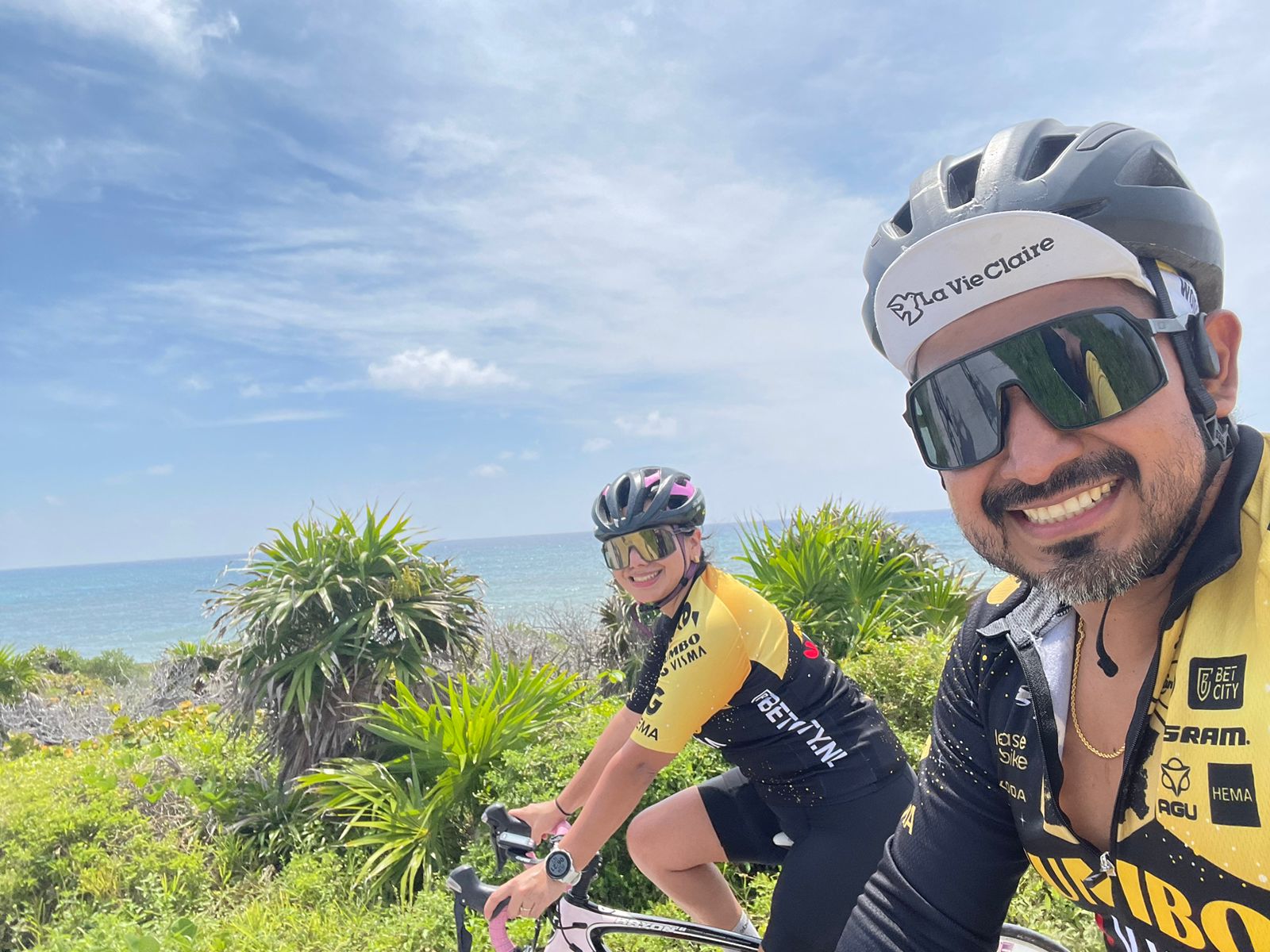
Then, as the intensity of COVID quieted down, Dr. Noriega’s attention shifted to another epidemic: addiction. Drug overdose deaths topped 100,000 in the U.S. in recent years. Fatal overdoses have doubled in Mexico in the last 15 years. As a doctor, he’d treat young people on ventilators after overdoses. He’d see older people dying of alcohol use disorder. Alcohol kills 50,000 Mexicans a year.
Dr. Noriega was dismayed that he had no real addiction treatments. Then, he heard whispers of something new.
Ibogaine Can Help Addiction
“People told me about this medicine that helps truly eliminate addiction,” says Dr. Noriega, “but I couldn’t believe it.”
Despite his traditional medical background, Dr. Noriega kept an open mind about an unconventional treatment. “I got curious, which led me to explore this field with the goal of helping to eradicate this addiction epidemic,” says Dr. Noriega.
Psychedelics have been found to battle addiction since the 1950s. Dr. Noriega read that no psychedelic is as successful for addiction as ibogaine. He became sure ibogaine was worth trying.
There was a hitch, though: Dr. Noriega quickly learned that ibogaine is significantly different from LSD or mushrooms in many ways–as an emergency room doctor, the physical aspects stood out the most.
“Ibogaine can have significant side effects, including cardiac arrhythmias, blood pressure alterations, and gastrointestinal issues,” says Dr. Noriega. “It may also interact with other medications, which can be dangerous. Its use may not be suitable for everyone, especially those with pre-existing health problems.”
Dr. Noriega found his specialty, emergency medicine, useful in treating ibogaine’s side effects.
“I started by immersing myself in this area,” Dr. Noriega says. “I dove deep into studying various psychedelic-assisted therapies and the significant results obtained not only for addictions but also for TBI, post-traumatic stress, pain management, among others. Drawing scientific evidence-based correlation between the optimization of the medicine and the effective risk mitigation strategies for our patients, my skills as a health professional contribute greatly to the success of each of these treatments.”
He studied the work of Dr. Deborah Mash, Dr. Nolan Williams, Dr. Thomas Kingsley Brown, and more. Pouring over their research, meeting them when possible, and interrogating their writing to deepen his understanding of ibogaine’s safety and efficacy based on all the scientific literature out there.
Heart-Centered Ibogaine Care
Dr. Noriega began working at Beond over a year ago.
For guests at Beond, Dr. Noriega is more than just their doctor—he’s someone who seeks first to listen deeply and understand, and then takes extra care to ensure they’re both physically and emotionally ready for their journey with ibogaine.
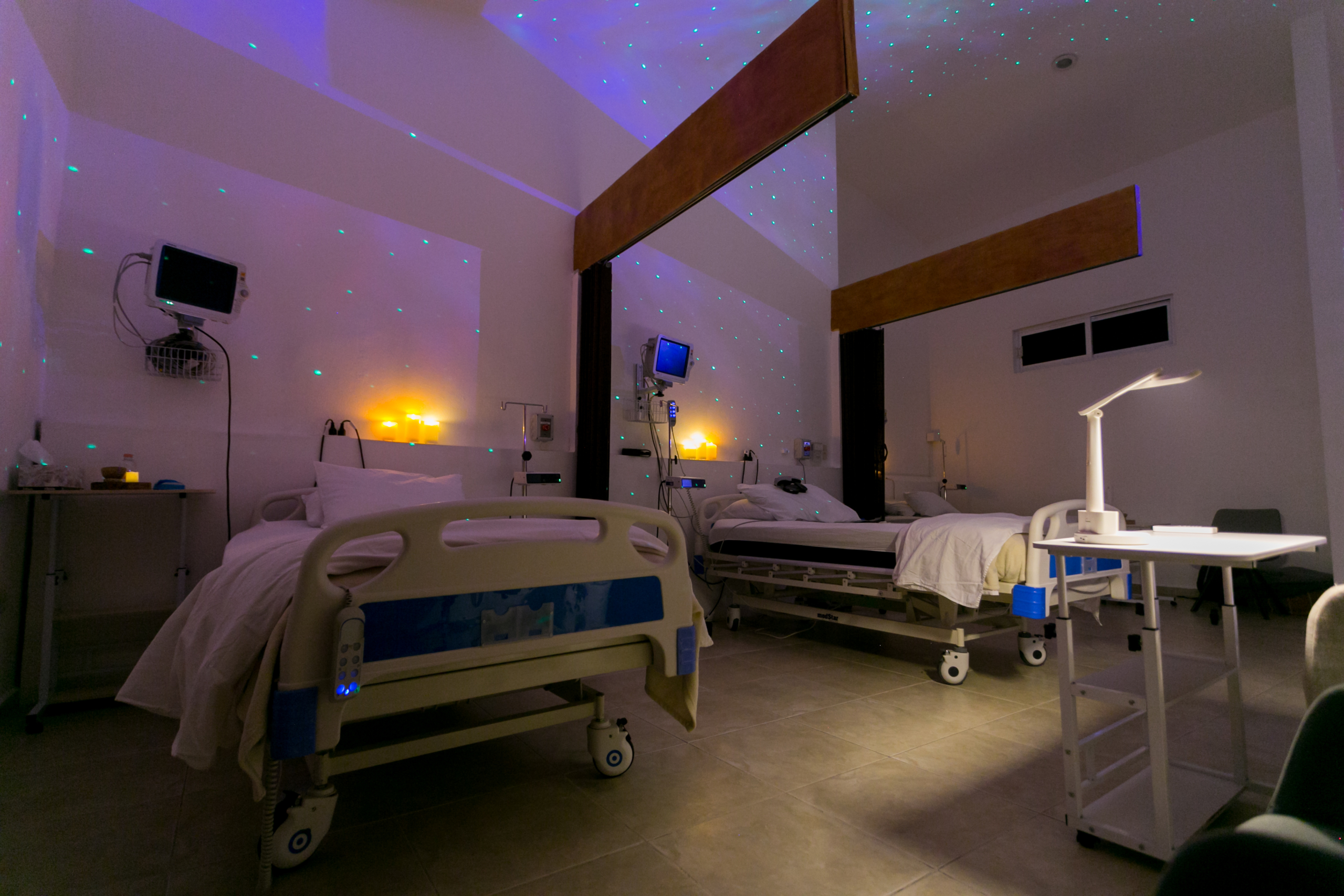
One of the ways Dr. Noriega plays a crucial role at Beond is assessing patients who are on the borderline of treatment; those with whose conditions require remediation prior to treatment (meaning they may or may not be candidates for ibogaine treatment, and may or may not require health/medication plan alterations prior to treatment.)
Dr. Noriega and the whole Beond team drive forward with the best medicine they can. If a guest we thought was cleared for treatment arrives in Cancun with an unexpected issue, Dr. Noriega and the team will investigate further. We won’t be satisfied with a simple EKG, like other ibogaine clinics might use. Dr. Noriega and the team might use deeper diagnostic tools like a CT or fMRI scan, as part of the search for the truth of the health of each patient.
For example, a guest might arrive with a pre-ventricular extrasystole, an irregular heart rhythm that is common—but might be a sign of a larger issue. Some guests who have used stimulants for a long time might have signs of ischemia or necrosis—meaning, part of the heart has died. In those cases, Dr. Noriega will put the guest through a series of additional diagnostic tests. He might put the guests on a holter—a wearable device that monitors their heart rhythms for a full 24 hours. Or Dr. Noriega might put guests on a stress test on a treadmill, to measure the heart’s strength. Or he might do an ultrasound to put eyes on the heart. All of these are routine for our team, but also extraordinary in the world of ibogaine.
With these careful diagnoses, following Beond’s strict medical protocol, Dr. Noriega can rule guests eligible for treatment—or not.
Ibogaine: a Boost In Empathy
“Compassion is the magic word,” says Dr. Noriega.
Beond has changed how Dr. Noriega practices, so he goes beyond traditional medicine. “You have to understand everyone’s purpose,” says Dr. Noriega. “The most important thing to know is if they want to work on themselves.”
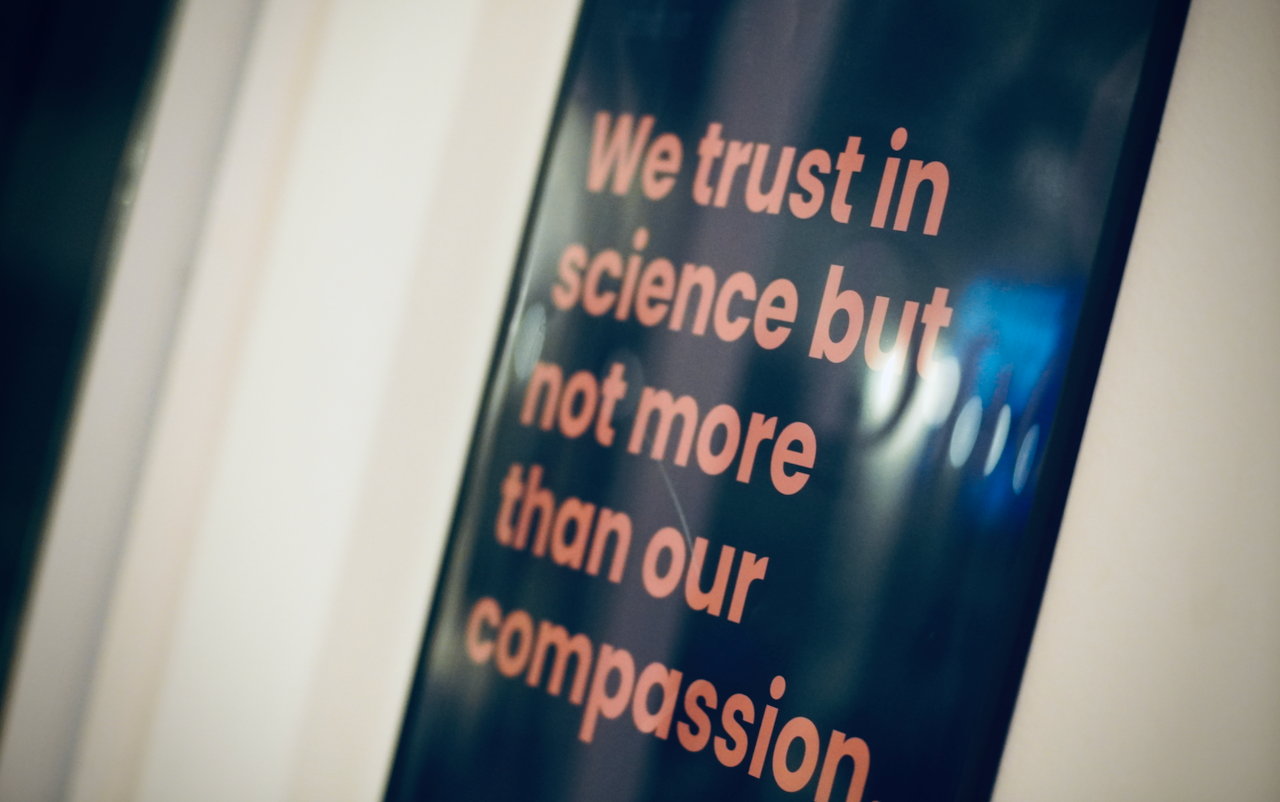
Guests all come for the same reason: to grow, heal and change.
“Some people can be aggressive, some of them can be kind, but all of them are human and all of them are looking for this opportunity to change,” says Dr. Noriega.
They are often seeking their true selves. The trouble is that their true selves are sometimes hidden from them by life’s hard knocks. They sometimes see themselves as “broken” or a “problem.” We know this is not true.
We try to give hope, along with our medicines.
“We aim to help everyone come to feel and know that they are actually the solution,” says Tom Feegel, CEO of Beond. The healing is the result of their work, their commitment and desire to change. “They are not machines and we are not mechanics. We are all seeking to change and heal, and at Beond we do it together.”
On our walls are motivational posters. They remind us of the value of self love, compassion, and respect for our guests. We want to treat our guests as humans, not just symptoms.
“Beond has shown me that it is possible to continue being a doctor with greater empathy,” Dr. Noriega says.
Dr. Noriega’s Happiest Time
“My favorite part of caring for our guests is their discharge… the final goodbye ceremony, as they leave to go back to their lives, families and to pursue their dreams,” he says.
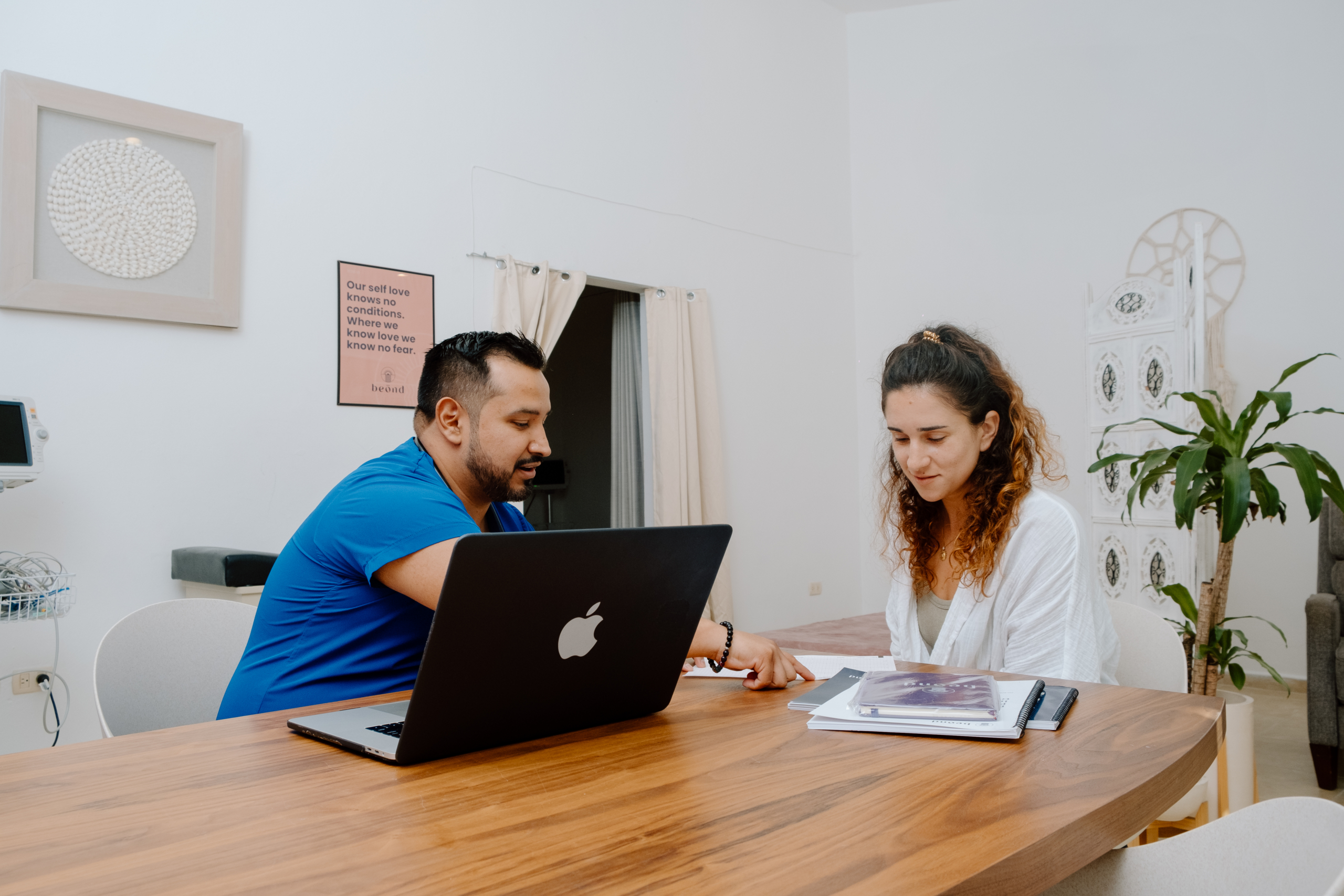
Waving goodbye isn’t Dr. Noriega’s favorite part because he wants to be done with them. When guests leave, Dr. Noriega feels a cluster of mixed feelings: inspiration, sadness, relief, and pride. “We notice a huge difference between when they arrive and when they head home… they are back to their true selves but usually have an entirely new vision for their future…” he says.
Our ceremony for guests who are leaving is standard operating procedure. We love it. All staff will assemble in the foyer and play “This is Me” and individually hug the people who are departing for home.
(The song, by the way, is about feeling worthy. It’s from a musical, where it’s sung by a bearded lady in a freak show. She sings, “I’ve learned to be ashamed of all my scars … [told] no one will love you as you are.” Then she finds her heart: “I’m not scared to be seen, I make no apologies—this is me.”
Dr. Noriega has seen great, positive change again and again, ever since he came to Beond. Often, people have stopped taking harmful substances. People take better care of themselves. For the medical team, it’s uplifting and inspiring and more rewarding than an emergency room.
“In the ER, you don’t usually get to see the breadth and depth of physical, psychological, and emotional healing, or whether we are winning the race against time!” says Feegel. “At Beond, we experience the full spectrum of change and growth and transformation. This is a welcomed and beautiful experience for our clinical team especially”
Beond’s mission is spiritual surgery—with effects rippling outward to the client and the clients’ surrounding friends and family.
Dr. Noriega would like, someday, to slow down and have children of his own. “I feel that caring for Beond guests is similar to having children,” Dr. Noriega says. “I protect them and guide them as best I can.”
The guests aren’t Dr. Noriega’s children, but the bond he builds with each of them is undeniable. And at the goodbye ceremony, Dr. Noriega sends them off into the great big world on their own, hoping that the entire team at Beond has given guests as many tools as we can to help them thrive.

